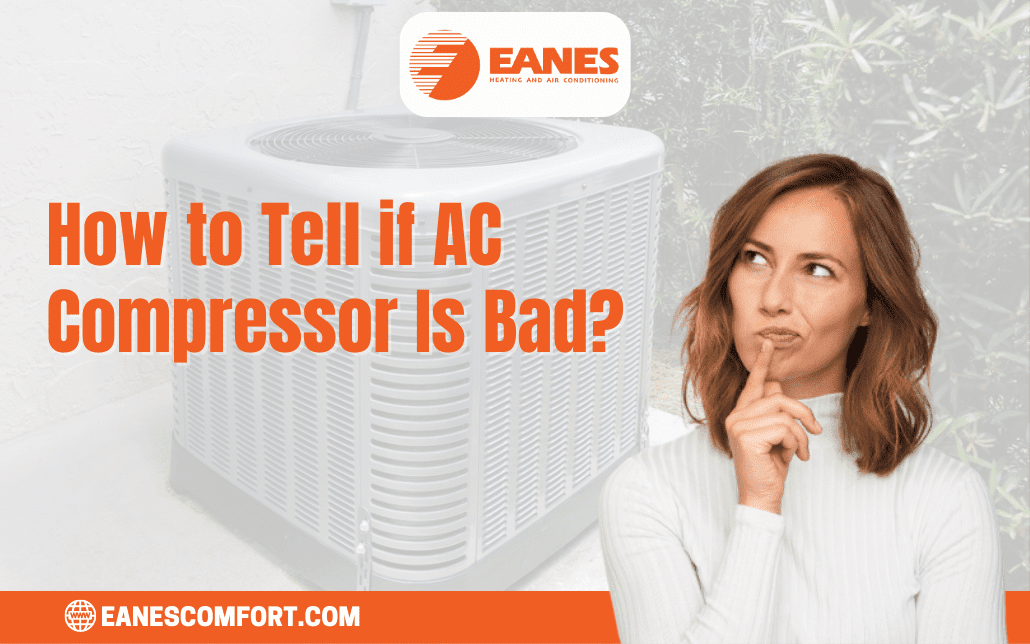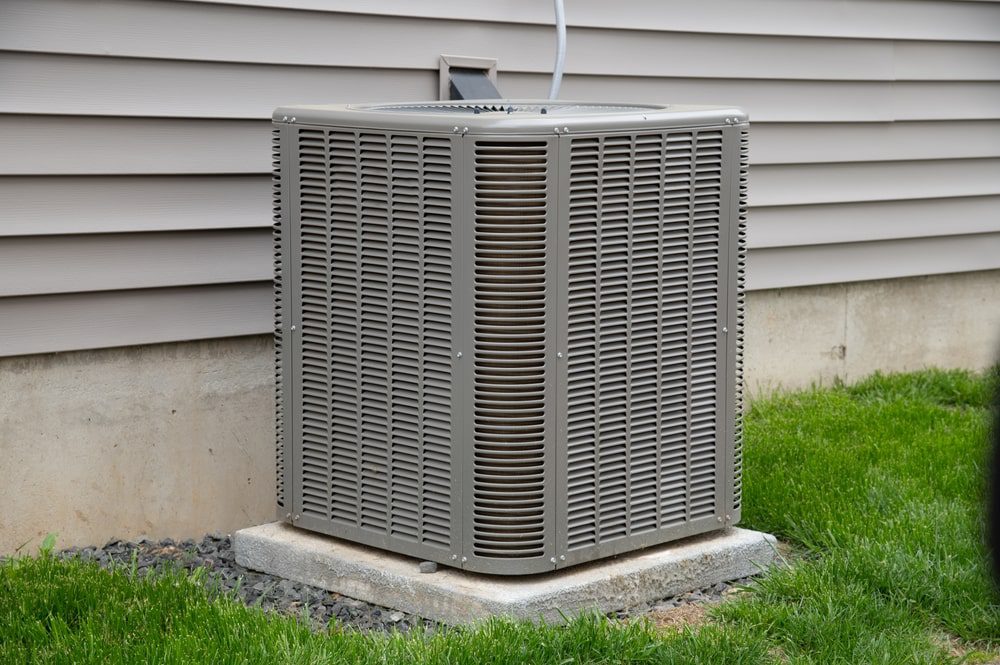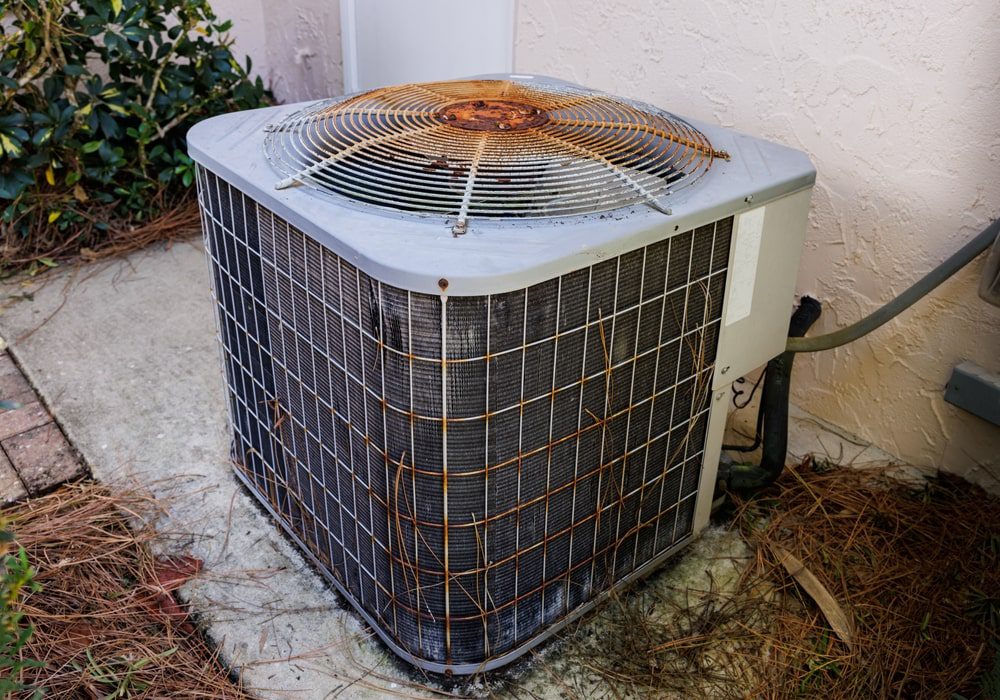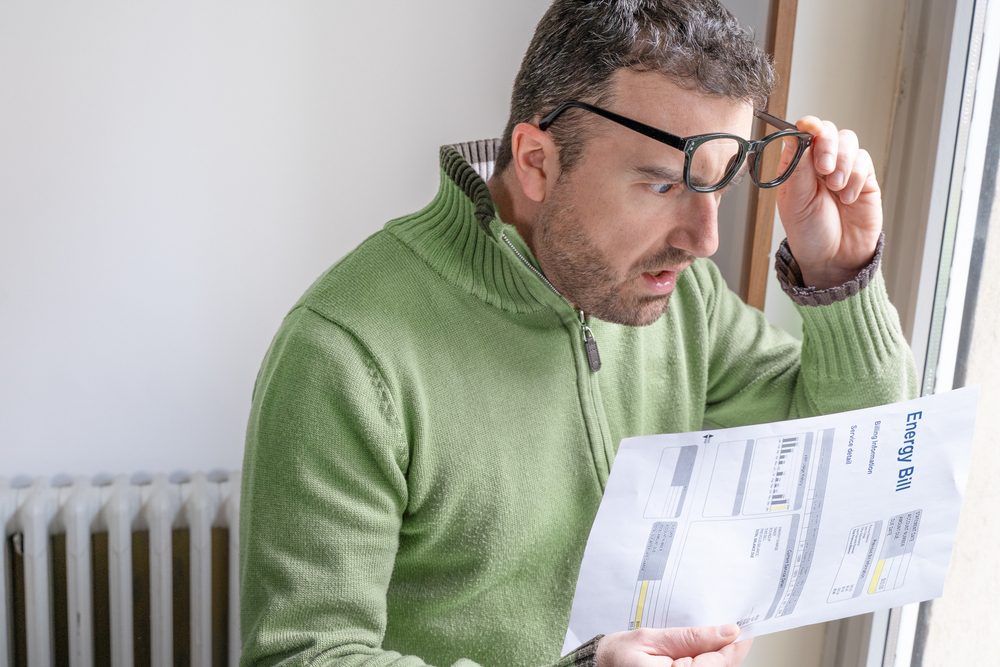
As temperatures soar to 90 degrees Fahrenheit or even higher, it becomes crucial to ensure your air conditioner compressor is in optimal shape to keep you cool and comfortable. The AC compressor, often called the heart of the system, is responsible for circulating the refrigerant that absorbs heat from indoor air and releases it outside.
This process results in the circulation of cool air within your home. We will discuss the importance of the air conditioning compressor, its function in the refrigerant cycle, and how to recognize when your compressor is failing to help you maintain an efficient and reliable cooling system.
What Is an Air Conditioner Compressor?

The compressor on your air conditioner is a crucial component in the cooling process of your HVAC system. Although often mistakenly referred to as the large metal box outside your home, the AC compressor is contained within that unit, alongside other essential parts. This motorized pump’s primary function is to transport refrigerant gas from the indoor cooling coil to the outdoor AC compressor or condenser, which is compressed and cooled back into a liquid form.
The refrigerant gas travels through the “suction line” from the indoor air handler cooling coil to the outdoor AC compressor. The outdoor compressor, or condenser, sends the liquid refrigerant back to the indoor air handler and evaporator coil. As the liquid refrigerant evaporates within the indoor cooling coil, it extracts humidity and cools the air.
By condensing the refrigerant gas outdoors in the AC compressor, heat is transferred from the indoors to the outdoors. In the case of heat pumps, this cycle operates in reverse, drawing heat from the outdoor air to the indoor coil when heating is required.
How to Tell if an AC Compressor Is Going Bad
It’s essential to recognize that there are telltale signs indicating a failing AC compressor. Awareness of these symptoms can help you address the issue promptly and maintain an efficient cooling system in your home. Let’s look at how to tell if your AC compressor clutch is bad.
1. AC Is Making Noises

If your air conditioning system starts producing growling, screeching, or clattering noises, it could indicate electrical failures within the compressor. These unusual sounds and vibrations in the condenser unit are clear indicators that something is amiss.
It’s essential to pay attention to these warning signs and continue running your AC, hoping the issue will resolve itself. Doing so may further damage the unit, leading to more extensive and costly repairs. Instead, address the problem promptly to maintain the efficiency and longevity of your air conditioner.
2. Air Conditioner is Cooling Slowly
A noticeable decline in your air conditioner’s cooling capability can be an indication of a failing compressor. Over time, compressors can lose their efficiency, reducing cooling performance. The average lifespan of a compressor is around 15 years.
Therefore, if you notice your AC struggling to effectively cool down your home as it once did, it might be a superb time to consider a replacement. Addressing this issue promptly will help ensure your living space remains comfortable and your cooling system functions efficiently.
3. Leaking Refrigerant from AC Compressor
A refrigerant leak from your air conditioner clearly indicates an issue with the compressor. Leaking refrigerant diminishes your system’s cooling capacity and can damage other components within the air conditioner.
Addressing this problem as soon as it is detected is crucial to maintain the efficiency and longevity of your cooling system and preventing harm through the release of refrigerant gasses into the atmosphere.
4. Diminished Airflow
Experiencing reduced airflow from your air conditioner may not be immediately apparent. You can check for it by placing your hands near a vent to gauge the air’s flow and temperature.
If the airflow feels weak and the atmosphere isn’t as cool as it should be, your compressor is malfunctioning. When you hear your air conditioner operating but don’t feel any air being circulated into the room, it’s likely a sign that your compressor needs attention.
5. The Circuit Breaker Keeps Tripping
If you notice that your outside air conditioning unit consistently loses power and trips the circuit breaker, it could be a developing warning sign of a failing AC compressor. The compressor might be overheating, causing it to draw excessive power, leading to the tripping of the breaker.
It’s crucial to understand that this issue lies with the compressor rather than the circuit itself. Continuously resetting the breaker is not a solution, as the breaker is designed to protect your home from potential fire hazards by interrupting the flow of electricity when an overload occurs.
6. Higher Electricity Bills

One of the key signs of a potential issue with your AC compressor that many homeowners notice is an increase in electricity bills. Operating an air conditioning system can be quite expensive, as it’s typically one of the most energy-consuming appliances in your home.
If you’re using your AC as you usually would but are experiencing higher costs for the same usage, it could be due to a struggling compressor. When the compressor works harder to cool the air in your home, the unit operates more frequently and requires more electricity to function, resulting in increased energy bills.
7. Dead Compressor
An overheating unit or a malfunctioning capacitor can cause a dead compressor. When faced with a dead compressor, the only viable solution is to replace the entire unit.
Contact a professional for help installing the replacement compressor. It ensures that the new component is properly installed, minimizing the risk of further issues, and safeguarding the efficiency and longevity of your air conditioning system.
Call Eanes for AC Compressor Repair and Replacement
When it comes to AC compressor repair and replacement, trust Eanes for reliable and professional service. You can easily schedule an appointment online for expert assistance with your HVAC needs.
Eanes services all HVAC brands and maintains a comprehensive inventory of replacement parts.
Our comprehensive installation process includes the following:
- Removing your old HVAC system.
- Installing a new concrete pad.
- Making necessary electrical changes.
- Setting up your new heating and cooling unit.
- Attaching refrigerant and electrical lines.
- Testing the system.
Call Eanes today to schedule an HVAC repair anywhere in the Piedmont Triad, including Greensboro, High Point, and Winston-Salem, NC.

